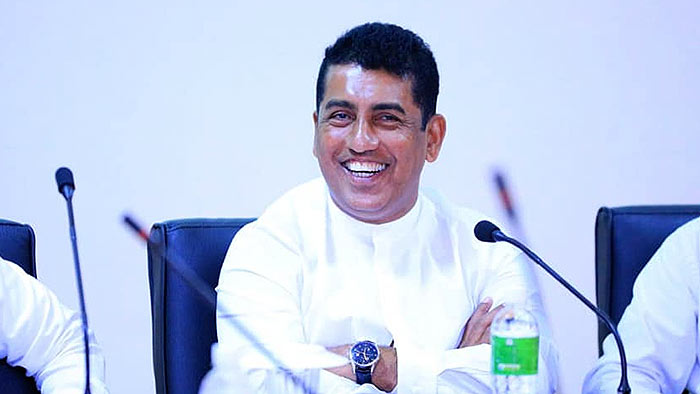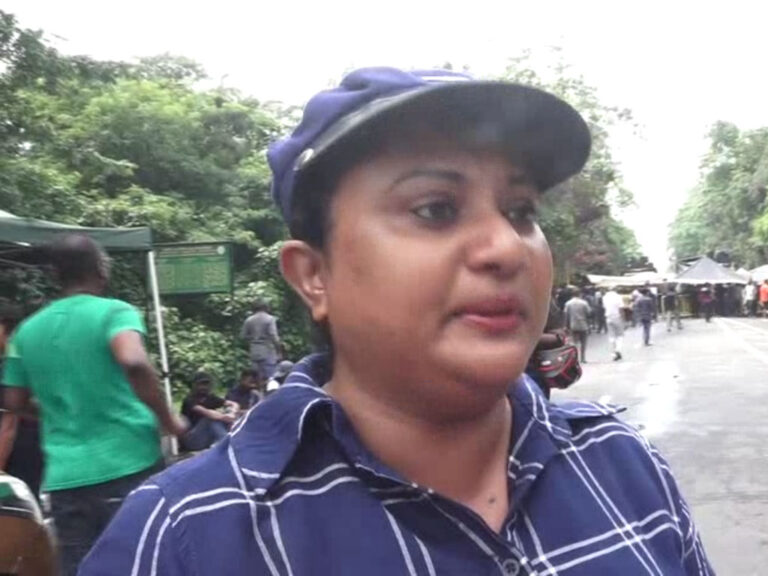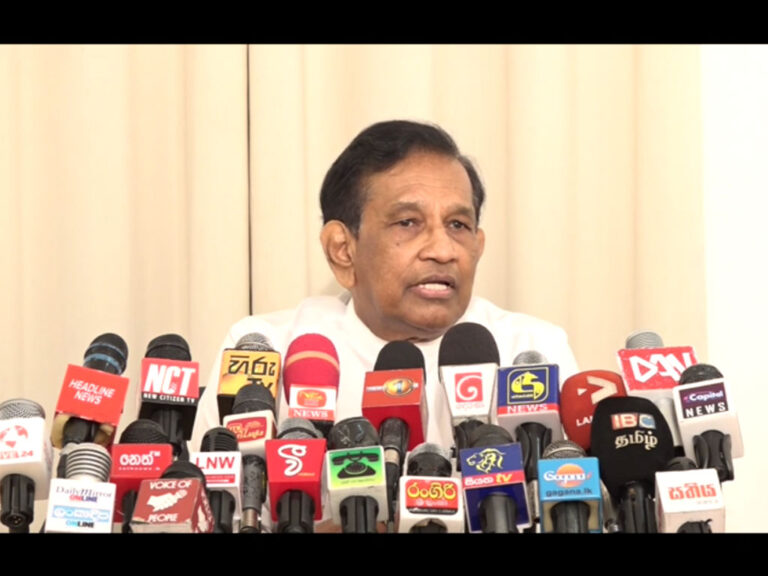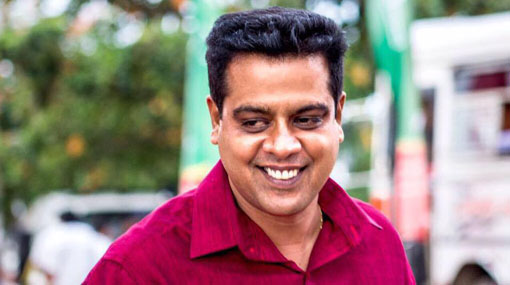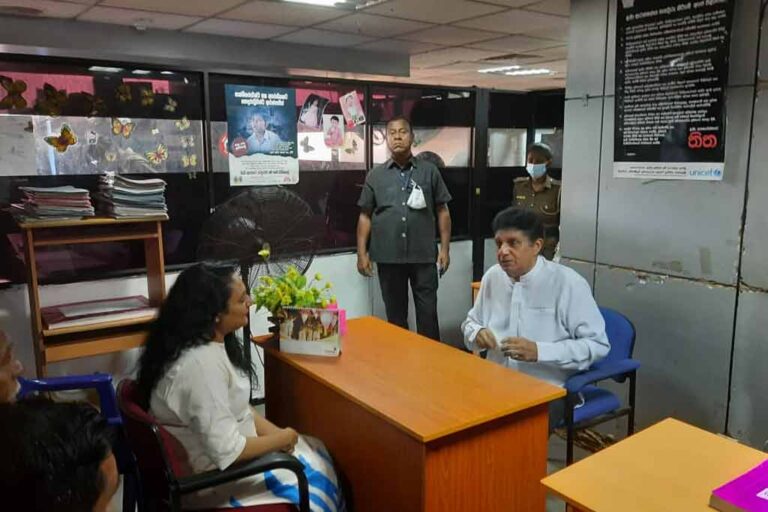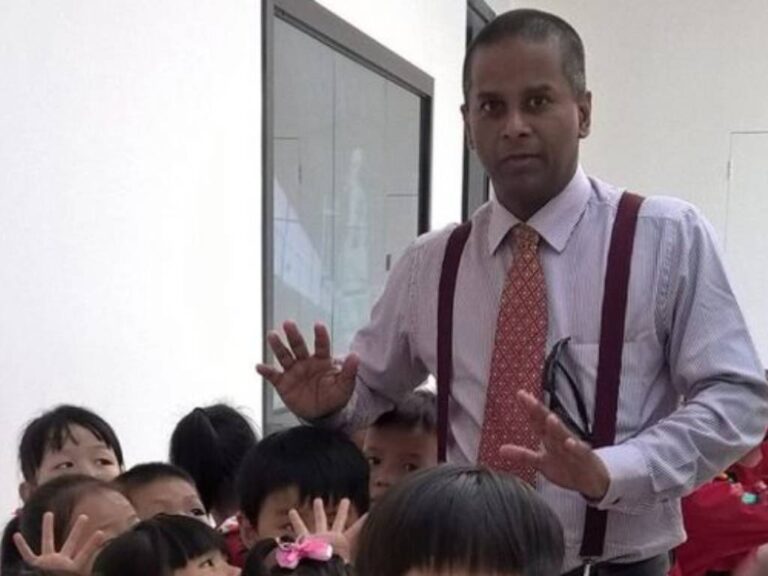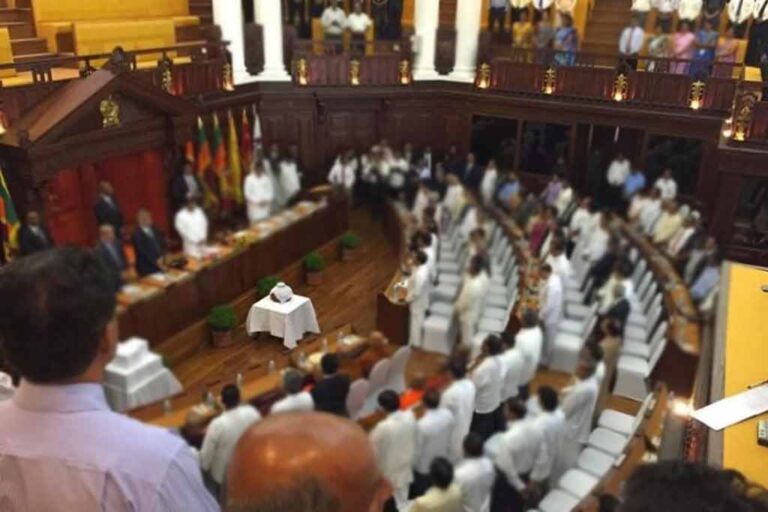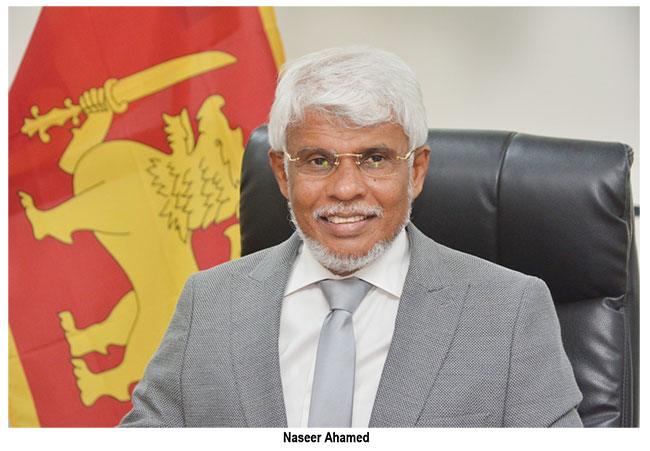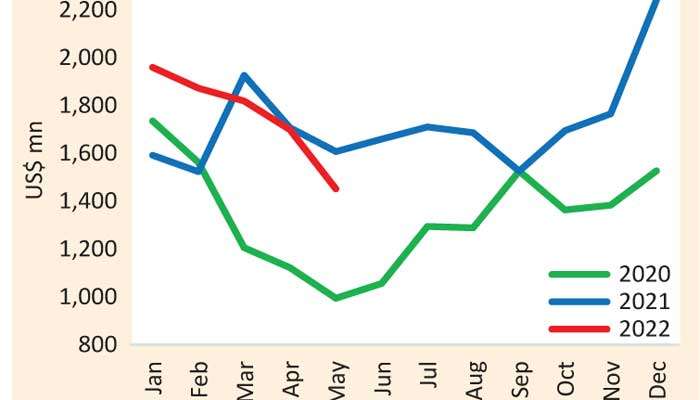Sri Lanka trade deficit has been shrunk in July 2002 after the significant drop in imports after 11 years, Central Bank data showed
In July imports amounted to $ 1.28 billion, down by 25% YoY but slightly higher in comparison to $ 1.22 billion in June. Expenditure on imports in the first seven months of 2022 was down by 3.5% to $ 11.3 billion.
The Central Bank said.that the plunge in imports and a healthy 5.4% increase in exports to $ 1.16 billion saw the trade deficit contracting notably in July to $ 123 million from $ 606 million a year ago, thereby easing stresses in the domestic foreign exchange market.
The trade deficit in the first seven months was $ 3.6 billion as against $ 4.9 billion in the corresponding period of last year.
CBSL said it continued to provide forex liquidity to finance essential imports, exhausting the usable level of gross official reserves. The weighted average spot exchange rate in the interbank market remained around Rs. 361 per dollar in July.
In July, a decline in expenditure was observed across all main categories, with the imports of investment goods and non-food consumer goods contributing the most to this decline.
The plunge in imports persisted in July YoY though marginally higher month-on-month with the Central Bank linking the downturn to a host of measures adopted to curb the outflow of foreign exchange.
In July imports amounted to $ 1.28 billion, down by 25% YoY but slightly higher in comparison to $ 1.22 billion in June. Expenditure on imports in the first seven months of 2022 was down by 3.5% to $ 11.3 billion
.
“The notable decline in import expenditure in July 2022 reflected the impact of overall moderation of activity amidst forex liquidity strains in the banking system, while the policy measures to curtail non-urgent import expenditure also helped to contain import demand pressures,” the Central Bank said.
In July, a decline in expenditure was observed across all main categories, with the imports of investment goods and non-food consumer goods contributing the most to this decline.
Expenditure on the importation of consumer goods declined substantially by 46.2% (YoY) in July 2022, compared to July 2021, contributed mainly by a reduction of 66.8% (YoY) in non-food consumer goods.
The decline in import expenditure on non-food consumer goods was observed in all subcategories, with a notable drop in imports of medical and pharmaceuticals (mainly, vaccines), telecommunication devices (mainly, mobile telephones) and home appliances (mainly, televisions).
Expenditure on importation on food and beverages also declined by 7% in July 2022 (YoY), primarily due to the decline in imports of oils and fats (mainly coconut oil), seafood (mainly dried fish) and vegetables.
However, expenditure on cereals and milling industry products (mainly rice), and sugar increased substantially in July 2022, compared to July 2021.
Expenditure on the importation of intermediate goods declined by 9.5% in July 2022, compared to July 2021.
Although import expenditure on fuel and fertiliser increased notably along with a relatively small increase in a few other categories, the overall decline in expenditure on intermediate goods was mainly driven by an 82.7% YoY decline in the expenditure on base metals (mainly, iron and steel).
Further, many other types of intermediate goods recorded a notable decline, including textile and textile articles (mainly fabrics), wheat and maize, plastics and articles thereof (mainly plastics in primary form), food preparations (mainly fat and oil), and agricultural inputs (mainly animal fodder).
Import expenditure on fuel increased by 34.9% (YoY) to $ 345 million, as volumes and average import prices of refined petroleum products increased, while imports of crude oil and coal were non-existent during the month. Import expenditure on fertiliser increased in July 2022, mainly due to high importation of urea.
Import expenditure on investment goods recorded a broad-based decline of 44.3% in July 2022, compared to the same month in 2021. Under machinery and equipment, transmission apparatus, computers, and harvesting machinery recorded a significant decline, among others.
Import expenditure on building material decreased, mainly owing to imports of iron and steel (primarily iron bars and rods), cement, and articles of iron and steel. Lower importation of railway related equipment, agricultural tractors and lorries contributed mainly to the drop in the import expenditure on transport equipment.
The import volume index declined by 36.3% (YoY), while the import unit value index increased by 18.1%, in July 2022, implying that the decline in import expenditure in July 2022 was mainly driven by the volume effect.

